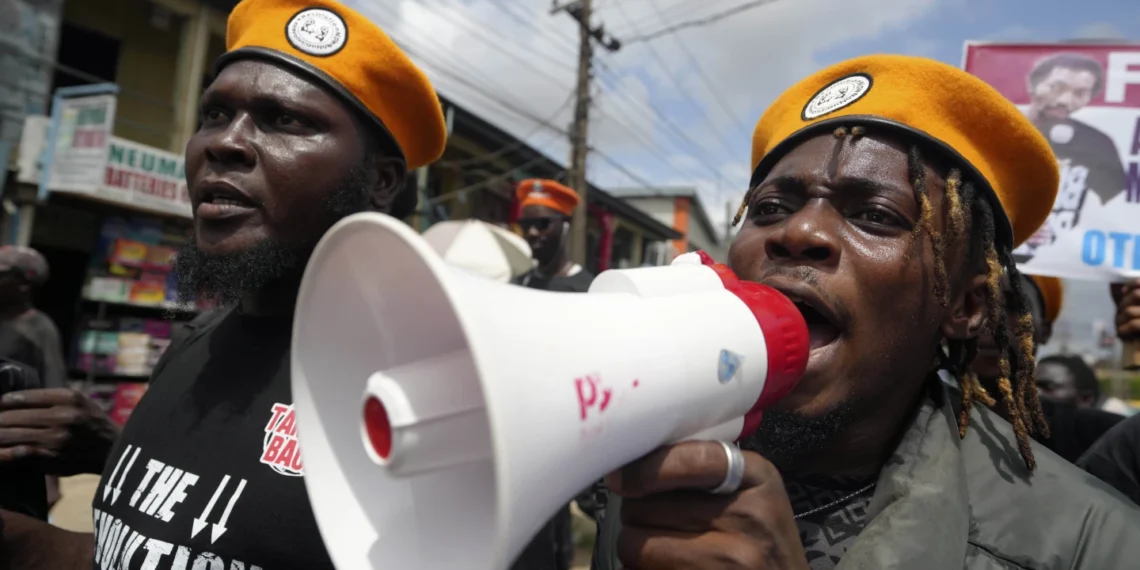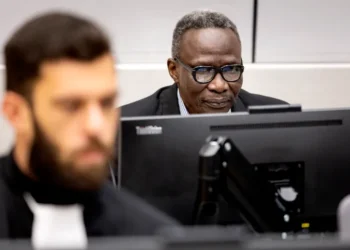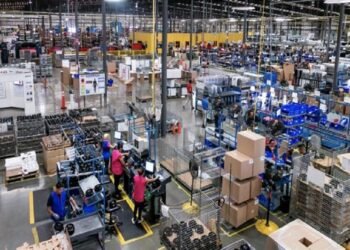Nigerians took to the streets on Tuesday to voice their frustration over mounting economic challenges as the country celebrated its 64th Independence Day.
The protests, which took place in several states, highlighted the worsening living conditions in Africa’s most populous nation.
Demonstrators carried placards and waved the green-and-white Nigerian flag, calling for better opportunities and more jobs for young people, as poverty and hunger rates continue to soar despite Nigeria’s status as one of the continent’s top oil producers.
In some areas, the protests turned violent. Police deployed tear gas to disperse crowds, leading to clashes between law enforcement and demonstrators. This marked the second protest in two months, as citizens grapple with government reforms designed to address Nigeria’s financial woes.
During the previous protest in August, security forces were reported to have shot at least 20 people dead, with hundreds more arrested.
The government, however, maintains that its reforms are necessary to revive the struggling economy. President Bola Tinubu, who took office in May last year, has defended the changes, noting that they are already producing positive outcomes, such as attracting $30 billion in foreign direct investment over the past year.
However, these reforms have also driven inflation to its highest level in 28 years and caused the naira, Nigeria’s currency, to hit record lows against the dollar.
Rising Tensions as Economic Troubles Persist
In the capital city of Abuja, where an official parade took place to commemorate the independence anniversary, protests erupted in a separate part of the city. Police once again used tear gas to break up the demonstrations.
Meanwhile, in Lagos, the country’s commercial hub, a heavy security presence was noted along major roads. Lagos is still reeling from the 2020 protests against police brutality, during which several protesters were killed.
Amid growing unrest, President Tinubu urged Nigerians to be patient, reiterating that the reforms are essential for long-term economic recovery. “Once again, I plead for your patience as the reforms we are implementing show positive signs, and we are beginning to see light at the end of the tunnel,” Tinubu stated during a broadcast to mark the independence anniversary.

In an attempt to engage the nation’s youth, Tinubu announced plans for a national youth conference, where young people will be able to voice their concerns. The recommendations from this conference will be taken into consideration and potentially implemented, he added.
Despite the president’s call for patience, many Nigerians remain frustrated with their current situation. On social media, the protests gained further momentum as citizens expressed their struggles with unemployment and food insecurity. With a significant portion of the population facing hardship, experts are concerned about Nigeria’s ability to progress.
Cheta Nwanze, a managing partner at the Lagos-based SBM Intelligence research firm, summed up the nation’s predicament, saying, “Nigeria remains an unfortunate case of running very hard and staying in the same place.”
Nwanze emphasized that the country’s poor performance in key sectors such as education and healthcare continues to hinder its development. “If your population is not healthy … or not educated, you can’t possibly make progress,” he added.
As such, Nigeria’s ongoing protests highlight the deep economic and social challenges facing the country. While government reforms aim to improve conditions, many citizens remain skeptical of tangible progress.
READ ALSO: Financial Analyst Cautions on BoG’s Gold Coin Initiative





















